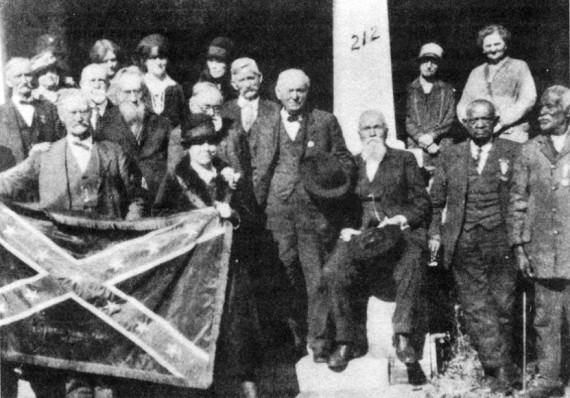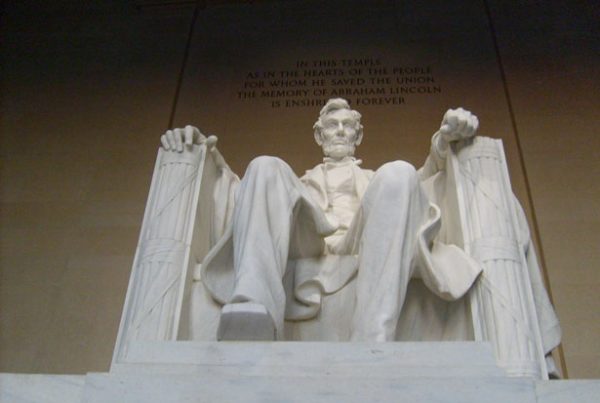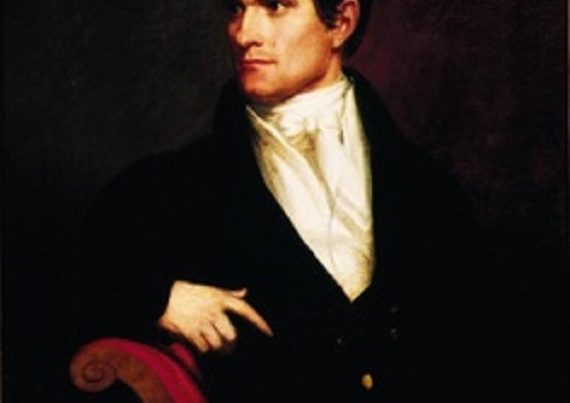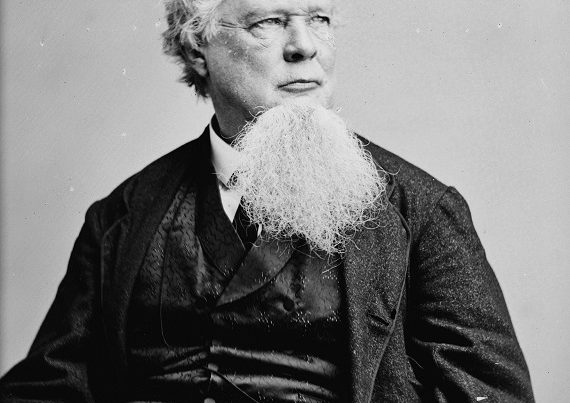
In an editorial published a little over a year after the Civil War ended, a Georgia newspaper writer expressed regret that the South had not accepted “the aid of the negroes” when it was offered. He even went so far as to say “we were fools” for refusing that help, and then he went even further and credited black Union soldiers for “whipping” the South.
It was the negro troops that whipped us … and if we had not been such fools as to refuse the aid of the negroes, we should have whipped the Yankees. – Macon Telegraph, as reprinted in the Daily Southern Herald, October 12, 1866
What “aid” is he talking about? Not slave labor, because they already had that in abundance. Anyone who has read my earlier columns looking at newspaper coverage of how black Southerners participated in the war might recall all the stories about free black volunteers in the first half of 1861, some of whom openly said they were willing to fight for their State or for the South. There are also stories of slaves volunteering to fight or urging their masters to go to war, and in both cases, there were likely more incidents than ever appeared in print. As someone who published news, the editor of the Macon Telegraph would be in a good position to know this.
The Memphis Daily Appeal echoed the sentiment, demonstrating that regret over the missed opportunity was not unique. In contrast to what I believe is a reference to the beginning of the war by the Macon Telegraph, this is clearly a reference to the debate that had taken place near the end of the war, as the Confederates carried on a very public discussion about the mass arming and enlistment of black men into the army. The slaves were faithful, this writer says, and they would have fought as they had served if guaranteed freedom for doing so.
We will not forget that fifty or sixty thousand negroes served faithfully in different capacities with the Confederate armies, and that if the Confederate Government had armed and organized two hundred and fifty thousand of them, guaranteeing their freedom at the end of the war, they would with all their heart have fought against the invaders of the South. – Memphis Daily Appeal, April 10, 1867
This Maryland newspaper also agreed.
… it has been said that every officer in the rebel armies had a negro servant with him; and of the four million slaves in the South, not one-tenth sought the Federal lines, and during the war, they were more than usually faithful to the wives and children of their masters, most of whom were in the rebel armies. – The Aegis & Intelligencer, Bel Air Maryland, February 23, 1866
One particularly bitter former Union soldier, Miles O’Reilly, late Private in the 47th NY, even wrote a poem bemoaning “black loyalty” which appeared in numerous newspapers. “The black rebs were worse than the white” he complained:
Well, we fought – aye, for four years we fought,
Pouring out lavish treasure and life-
Did the black then arise as he ought,
Cleaving northward with torch and with knife?
All his masters were far from his track,
Under Johnson and Lee in the fight;
There was nothing to hold the black back
From assisting his champion, the white.Did he aid us when bleeding we stood
To chase from him slavery’s dreams,
Or to Lee sent his clothing, and food,
Harness, powder, equipment and teams?
We all know that in one single State
A revolt would have ended the fight;
So no more of their “loyalty” prate,
For the black rebs were worse than the white.
– excerpt from the New York Herald, September 24, 1867
It is clear from wartime reporting that a belief that the South had men of color who were willing to fight arose early in the war and lasted all the way through it. Rather than vanishing after the war ended, this belief persisted, and it’s not hard to understand why. When these men came home from the war and began to tell their stories, what they had done became known in their communities and was sometimes publicly recognized by the papers, spreading that information beyond their local community. After collecting a number of stories it quickly became apparent to me that unlike many today, the men writing these articles in Reconstruction-era newspapers had no problem with defining these men as “rebels,” “veterans” or “Confederates”, even sometimes labeling men who had been slaves during the war as “soldiers”. Whether that is accurate terminology or not (and it sometimes was), the point is that writers were willing to put these characterizations into print even in the midst of the racial turmoil of Reconstruction.
Even if former slaves who fought during the war were not named as soldiers, they could still be “rebels”. Private O’Reilly, quoted above, called them “black rebs”. Here is “the bitterest rebel of all.”
A firm in Nashville, one of the largest and most respectable mercantile houses in the West, paying annually many thousand dollars of taxes, has, including clerks, six persons employed in the concern besides the porter, who is a negro. The latter is now the only one of the whole concern who is allowed a vote under the present Brownlow Constitution. The point of the joke is, that the negro was the bitterest rebel of all, and was an officer’s servant in the late rebel army, and when fighting by his master’s side he was the third man over the ramparts of Fort Pillow, where he fell like an avenging thunderbolt upon the negroes – who so gallantly surrendered that stronghold. – The Richmond Daily Dispatch, February 21, 1867
The Evansville Indiana Journal was not impressed. They commented on March 5, quoting the Sentinel on the Border newspaper:
Remarkable as it may appear under the “loyal” laws of the “State of Brownlow,” the negro porter in the establishment is the only one qualified to vote; and here is a rebel negro, having fought beside his master for the independence of the South!… That [Tennessee] law does not say that white rebels shall not vote while black rebels shall…. it shows no partiality for that rare bird, a black rebel. The negro who helped to butcher colored United States soldiers at Fort Pillow will be disfranchised as plainly as General Forrest is. We feel no liking for “revenging thunderbolts” because they happen to be black. – excerpts from The Evansville Indiana Journal, March 5, 1867
Take a look at the terminology here. This black porter in Tennessee is a “rebel negro”, who “fought beside his master” and “helped to butcher” black Union troops. He should be prevented from voting the same as “white rebels” according to the Indiana Journal. He is not called a soldier, and in fact it’s made clear that he was a servant during the war, but that did not prevent him from being a rebel.
There are other black rebels to be found in Reconstruction-era newspapers, such as an unidentified black man who laid flowers on a grave at a memorial ceremony in Richmond, only a year after the war had ended.
If the white and the black rebels and rebel sympathizers of Richmond can mingle tears, why not mingle ballots.” – excerpt as reprinted in the Nashville Daily Union, May 17, 1866
It was not just newspaper editors who noted black rebels. Benjamin Butler, former Union General, gave a speech in Lowell, Massachusetts, during which he reviewed his military career and described the evidence he had found of black soldiers in New Orleans.
He [Butler] needed reinforcements and sent for them. They could not be spared. He found papers filled out and signed commissioning officers to form two colored regiments to serve in the Confederate army; he struck out the “C. S.” and wrote over it “United States” and soon had two regiments of colored troops. – The New York Herald, September 12, 1868
Butler was speaking of the 1st Louisiana Native Guard, who were volunteer Louisiana State Troops rather than enlisted in the Confederate army, but that may have been a distinction without a difference for Butler. Enemy soldiers were enemy soldiers. He was not jumping through hoops looking for technical ways to deny that these men were Confederate, as I have seen numerous modern writers attempt to do. In a speech at Rochester, NY, Butler again discussed this same subject, and gave the rebels credit for the first armed black men of the war.
Let me say a word to Democrats who don’t believe negroes should have been armed. Where and when do you suppose was the first arming of negroes in the war? In February 1862, Thomas O. Moore, rebel Governor and commander-in-chief of rebel forces in Louisiana, organized two regiments of colored soldiers, officered by colored men, and drilled in the same field with white Confederate soldiers. These were the first negroes seen since Andrew Jackson organized two regiments of negroes for the defense of New Orleans. – excerpt from the Rutland Weekly Herald, November 8, 1866
Butler was not the only one to use the term soldier. Here the word is explicitly used in reference to a black “rebel soldier”:
A white man is certainly as good as a negro who was a rebel soldier, and is now a registered Radical voter in this county. Don’t you think so Mr. B. Scalawag? – Wheeling Daily Register, August 22, 1870
We are not given any details about this man, and indeed he’s used as an example to criticize the disenfranchisement of some white voters at this point during Reconstruction, rather than being the direct subject of the story. The point being made is similar to that of the account of the servant who fought at Fort Pillow, being a complaint that “black rebels” did not suffer the same consequences for siding with the Confederacy as the white men, so this black rebel is not being praised. At the same time it is yet another example of a newspaper referring to a black Southerner as a “rebel soldier”, long before some today would have us believe that a belief in black Confederate soldiers existed.
A discussion of Elmira Prison in New York with the former sexton Mr. Jones, himself a black man, gives the reader still another use of the terms Confederate and soldier applied to an African-American, explicitly named as such by Mr. Jones, and once again he’s a “bitter” rebel:
There was one Confederate soldier who was a coal black negro. He had been captured in the Confederate ranks at Gettysburg. He endured confinement and chances of death in the prison nearly two years rather than take the oath of allegiance. He was the most bitter rebel I ever saw. – The Richmond Daily Dispatch, August 20, 1880
Judith C. Judah, widow of a black musician who was killed while a member of the Richmond Light Infantry Blues, sent a wreath in his memory and attached a letter, which the Richmond Daily Dispatch published and commented on, titling the article “A Colored Southern Soldier.” There is no indication that Mr. Judah ever once fired a musket. He was a musician, not an infantryman. And yet, the Richmond Dispatch had no problem describing him as a soldier multiple times, and even spoke of the white soldiers as his companions in arms. Despite the color barrier, he was one of them.
This letter is too full of pathos and genuine feeling to need one word of comment; and the wife of the colored soldier who fell in the service of the South may rest assured that his name will not be forgotten by those who, although of a different color, were still his companions in arms. – excerpt from the Richmond Daily Dispatch, May 11, 1866
“Soldier” is not the only military term that is found in these post-war accounts. The earliest example I have found of a former slave being referred to as a “veteran” comes from an 1870 account of the funeral for a local Sheriff, John R. Ivey.
Ranged near the grave was the noted “Old Billy,” the colored veteran, with his family. They were formerly slaves of the deceased, and were shedding abundant tears at the loss of a kind friend and protector. – Weekly Columbus Enquirer, January 4, 1870
Critics would probably focus entirely on the appearance of the “faithful slave” belief yet again and ignore the fact that the newspaper named him as a veteran, the only indication in this story that he went through the war in some capacity. He was not the only black man to attend a memorial day ceremony. Sometimes these men were invited to attend.
We are pleased to learn that the committee on invitation for decoration day at Elmwood Cemetery, on Wednesday, have published in their programme an invitation to the colored men who were connected with Confederate service to join in the procession. – Public Ledger, Memphis Tennessee, June 3, 1878
I have not found the exact term “black Confederate” during this era, but we do find the 19th century equivalent, again appearing long before the present day:
A Colored Confederate – A colored man named John Phillips, who says he was a body servant of Col. Phillips, Phillips’ Legion, during the war, passed through our city Friday on route from Virginia. He was wounded in the head in one of the battles in Virginia, and the ball was but recently extracted, leaving the unfortunate man totally blind. – He goes to his relatives in Atlanta now to which place a pass was given him. He ought to be kindly cared for. – Augusta Chronicle, as reprinted in the Thomaston Herald, July 25, 1874
One of the things that reading these many newspaper accounts has clarified for me is that it is a mistake to allow the argument about black Confederates to be framed strictly in terms of officially recognized soldiers. When it came to the white population, there were Confederate civilians as well as Confederate military. The same must logically be true of the black population. One did not have to be enlisted in the military to be a Confederate, or else Jefferson Davis and Judah Benjamin were not Confederates, and that’s obviously absurd. Mr. Phillips was neither enlisted nor a citizen during the war, but he was still identified a Confederate by the Augusta Chronicle, and as someone wounded and disabled as a result of his participation, he should be cared for. There is a sense of both concern and obligation conveyed here.
When it comes to verifiable enlisted, armed and uniformed soldiers, the black men recruited under the March 1865 law passed by the Confederate Congress had not been swept under the rug during this time any more than slaves who had gone to war had been. Some of the men who had been involved with that debate over arming the slaves told their stories after the war.
In the forthcoming No. of the Southern Historical Papers Hon. R. M. T. Hunter replies to Hon. Jefferson Davis, and explains why he (the writer) did not favor putting negroes in the Confederate army when proposed by Mr. Davis. – The Richmond Daily Dispatch, November 29, 1877
… We hear not much more of the negro enlistment question. The papers urge the importance of dispatch, patience, discipline. The recruiting office on the twenty-first got on well, and another office was opened successfully in Lynchburg. A portion of the recruits of Messrs. Pegram and Turner went into camp on the north side about the twenty-seventh of March. The Lynchburg papers published a circular of citizens of Roanoke county pledging themselves to emancipate such of their negroes of the military age as would volunteer to enlist…. excerpt from the New Orleans Daily Democrat, July 21, 1878
The Georgia Historical Society has been presented Gen. Lee’s plan for organizing negroes into confederate regiments. – The Winchester Tenn. Home Journal, June 20, 1878
A Southern paper has published a letter by Confederate General Lee… the Confederate chieftain expresses the opinion that colored men would make efficient soldiers, and that those employed as such should be freed. – excerpt from the Highland Weekly News, April 20, 1871
Major Mark Newman of the 49th Georgia had felt the papers documenting his unit’s discussion about the mass enlistment of black soldiers were important enough to preserve, hiding them in his hat band while he was imprisoned at Johnson’s Island in Ohio. He would later turn the papers over to the Georgia Historical Society, and the Vancouver Washington Independent told the story in an article entitled “Colored Confederates”.
When in former years, for pecuniary purposes, we did not consider it disgraceful to labor with negroes in the same field, or at the same work bench, we certainly will not look upon it in another light at this time, when an end so glorious as our independence is to be achieved. We sincerely believe that the adoption throughout our army of the plan here most respectfully submitted… will… cement a reciprocal attachment between the men now in service and the negroes, highly beneficial to this service…. – excerpt from the Vancouver Independent, May 1, 1879
In the midst of the racial strife and societal transformation that went on during Reconstruction, what can we learn from these varied examples of post-war newspaper reporting on black Confederates? If we’re looking for large numbers of black Confederate soldiers, there are none to be found, other than Butler’s “two regiments.” If we’re looking for samples of what people knew and what they believed about black participation on the Confederate side of the war, there is a lot here that I have not seen elsewhere when reading about this topic from a modern perspective. It seems that many newspaper writers and editors in the decade and a half after the war that I’ve sampled from for this article had absolutely no difficulty in labeling black Southerners as “rebels” or “Confederate” or even “soldiers” on some occasions, whether the Confederate government had recognized them as such during the war or not. And though I’ve seen numerous examples cited of the idea of the faithful slave expressed by someone from the South, I have not often seen the “faithful slave” belief expressed by some who fought in the Union army along with resentment that the slaves did not do more to help them end the war. We cannot claim to know how many people held any of these beliefs from these few examples, but they existed, and people were not afraid to express them. More to the point, the constantly repeated assertion that a belief in black Confederate soldiers is a purely modern invention is clearly untrue. Wartime newspaper coverage already proved that, and this just adds to that evidence.
We are not being told the full story of black Southern participation in the war, or the full story of attitudes and beliefs about that participation. There is a lot of information out there that can be found if one will simply go around the modern historians and modern narratives and go back to contemporary sources, and the newspapers cannot be overlooked as a source of information.






